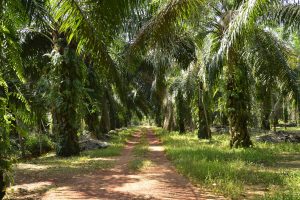A senior Malaysian official has again criticized the recently passed European Union regulation on deforestation, claiming that it amounts to “discrimination” against small-scale producers of palm oil.
In a statement yesterday, Malaysia’s Deputy Prime Minister Fadillah Yusof called for smallholders to be exempted from the EU’s Deforestation-Free Products Regulation, which requires palm oil producers to prove that their supply chains are not contributing to deforestation.
“Small farmers depend on the export of palm oil, rubber, and other agricultural commodities to support their families,” Fadillah said in the statement, according to the New Straits Times. “The deforestation regulation presents a significant stumbling block for them to access the European market, the ultimate outcome of which would be to increase poverty, reduce household incomes and harm our rural communities.”
He added, “These actions are unjust and stand in stark contrast to the EU’s commitments outlined in the United Nations sustainable development goals.”
The EU regulation, passed in December, aims to “ensure that a set of key goods placed on the EU market will no longer contribute to deforestation and forest degradation in the EU and elsewhere in the world,” the European Commission said in a statement following its passage.
The law will also apply to cattle, soy, coffee, cocoa, timber, and rubber, as well as various products derived therefrom, as well as palm oil, which has been credibly linked to a long list of labor rights abuses in addition to “widespread rainforest destruction and wildlife loss” in both nations.
The passage of the regulation has increased tensions between the EU and Malaysia and Indonesia, the world’s two largest producers of the versatile, ubiquitous, and controversial oil. Indeed, the two nations, which otherwise compete fiercely over global palm oil market share, shelved their differences and joined forces to lobby against the proposed regulatory changes, fearful it could severely impact their exports to European nations.
Fadillah has been positioned at the forefront of the Malaysian government’s push against the regulation, and since its passage, has even gone so far as to suggest that the country might halt palm oil exports to the European market. (He later walked back the comments.)
His statement was issued in support of a group of small farmers, which gathered in central Kuala Lumpur a day earlier to hand a petition to the Delegation of the EU to Malaysia, while unfurling banners reading, “We take good care of our forests” and “Stop discrimination against palm oil.”
There is some evidence that the EU regulation could have a deleterious impact on smallholders. In an interview with Reuters last month, Joseph D’Cruz, the head of the Roundtable on Sustainable Palm Oil (RSPO), a non-profit organization that works to improve sustainability in the sector, said that smaller producers may lack the capacity to undertake the onerous supply chain reporting requirements contained in the legislation.
“There is a human, social and developmental cost there, which smaller, marginal producers may be forced to bear in order for the EU deforestation regulation to be implemented the way it is being set up right now,” D’Cruz said.
At the same time, the plight of smallholders is clearly being used by the palm oil industry, which has long played down the extent of the deforestation and labor abuses linked to palm oil plantations, to discredit European regulation as a whole. It is clearly no coincidence that Wednesday’s smallholder protest was preceded by a press advisory from DCI Group, a Washington-based public relations firm, suggesting a degree of coordination between the smallholders and either the Malaysian government or palm oil industry associations.
All of this is also a reminder of the huge financial interests that are potentially at stake, which suggests some rocky times ahead for EU-Malaysia relations.

































